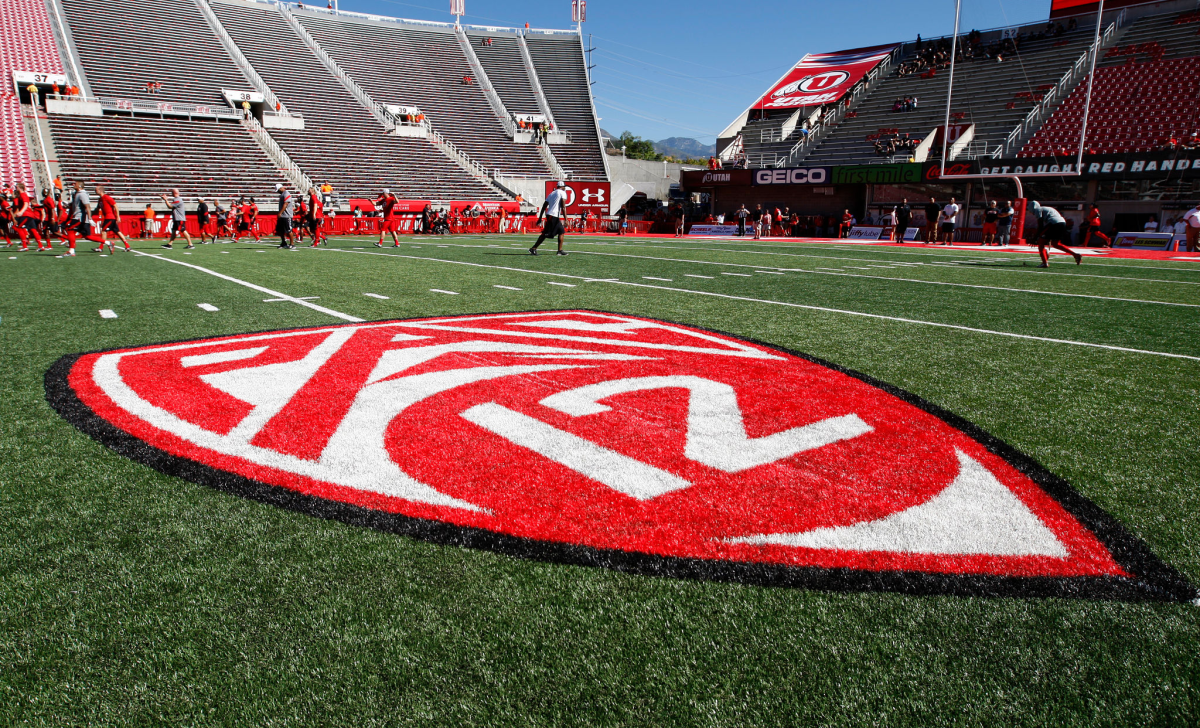How Pac-12 revenues, spending and distributions compare to rest of Power 5

- Share via
When the Pac-10 expanded in 2011, adding Utah and Colorado, it also signed the richest television deal in college sports history. The conference earned praise for the $3-billion, 12-year deal that almost tripled the Pac-10’s annual television revenues.
“It was a landmark deal at the time,” said Scott Barnes, who was named the Oregon State athletic director in 2016.
That time has passed.
Analysis of public tax documents filed by each of the Power 5 conferences in the years since the Pac-12 was born show that the conference has fallen behind competitors such as the SEC and Big Ten in revenue, reducing the money the conference distributes back to its member schools. Since the Pac-12 locked down its historic agreement, the SEC extended its deal with ESPN in 2013 and created the SEC Network. The SEC’s revenue almost doubled in two years after the extension. The Big Ten jumped into the lead in 2017 with a six-year deal worth a reported $2.64 billion that vaulted the conference from $512 million in revenue in the 2016-17 fiscal year to $758 million, which was the most for any Power 5 league.
How conference revenue trickles down to schools
The Pac-12 media contract boosted the conference from last to first to now third in revenue, but that doesn’t always translate to comparable distributions to its schools. In the 2018-19 fiscal year, the Pac-12 was a distant third among Power 5 conferences for revenue, but distributed the fourth-most money to its schools, on average. The Big 12, which made about $300,000 less per school than the Pac-12 in revenue that year, gave each of its schools about $7 million more than what the Pac-12 distributed to its members.
How conferences spend their money
The Pac-12 lags behind in distributions despite its growing revenue due to spending in other areas.
The Pac-12’s largest expense category after its grants for schools is salaries and benefits for employees, which amount to 7.2% of the expenses. Salaries account for no more than 2.3% of expenses in any other Power 5 conference.
Costs associated with the Pac-12 Network, the conference’s independently owned and operated media network, contributed to an information technology bill of more than $10 million during the 2018-19 fiscal year. The Big Ten and Big 12, the conferences who spent the next-closest amount of money on IT that year, each spent less than $420,000.
The Pac-12 distributed only 74.5% of its expenses back to the schools in 2018-19, the highest percentage spent on schools in the conference since 2010-11, the final year of the Pac-10. The SEC spent 89.6% of its expenses on school distributions while the Big Ten, ACC and Big 12 all spent more than 92%.
More to Read
Go beyond the scoreboard
Get the latest on L.A.'s teams in the daily Sports Report newsletter.
You may occasionally receive promotional content from the Los Angeles Times.











